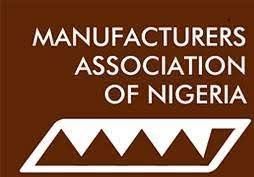The Manufacturers Association of Nigeria (MAN) has said feedback from members indicated that production capacity utilization was going down due to the unsustainable cost for running daily production on diesel.
Mr Segun Ajayi-kadir, Director-General, MAN, made this known on Thursday in Lagos and said that the rising price of Automotive Gas Fuel (AGO) otherwise known as diesel had become very worrisome following it negative impact on businesses especially the manufacturing sector of the economy.
He noted that the latest twist was occasioned by the scarcity was induced by the war between Russia and Ukraine due to the increase in price of crude oil in the international market which has gone above $110 per barrel.
“Knowing also that diesel has been deregulated removes the question for a buffer to the cost.
“The law of demand and supply is at play here and since we have historically lacked local refining capability, we are left at the mercy of the vagaries of international price and the geopolitics of it.
“As long as the price of crude oil continues to go up, price of AGO will equally skyrocket.
“It is now said to be selling at N750 per litre, up from about N300 per litre in 2 Months ago.
“Unfortunately, manufacturers who largely rely on diesel to run their factory, due to unreliable nature of the grid power supply, are contending with huge cost to sustain their production line.
“The direct implication of this trend, as many Nigerians are already feeling the heat, is the reflective high cost of goods in the market owing to the high cost of production,” he said.
The MAN DG furthered that it was on record that manufacturers expended N100billion yearly on alternative energy source which constitutes between 30 to 40 per cent of their cost structure.
He said that the implication was that manufacturing cost structure was thrown overboard; working capital depleted, capacity utilization nose-dived.
“Since the average Nigerian’s disposable income has been depleted, we can only expect that the resulting higher prices of goods will further constrain purchases and aggravate the poverty level.
“The solution is rather complex since we are dealing with a deregulated industry as I earlier mentioned.
“In the short term, we can only look at how to get more favourable prices from the marketers; seek to remove other costs that are in-country like VAT on the AGO and work with government to reduce the pressure in other pain points for the manufacturers,” he said.
In the long run, Ajayi-kadir stressed the need to do the sensible thing of making our refineries work, incentivising the building of more refineries and generally ramping up the private sector players in the sector, including foreign ones.
“And of course the big elephant in the room is making electricity available to manufacturers.
“Governments should deliberately prioritize supply to the sector in view of the multiplier effect it has on the economy and government revenue.
“The eligible customer scheme should be allowed to work without any hindrance, including the requirement of no-objection from the DisCos.
“The tariff structure that makes the maximum demand customer to pay more should be re-examined,” he said.




